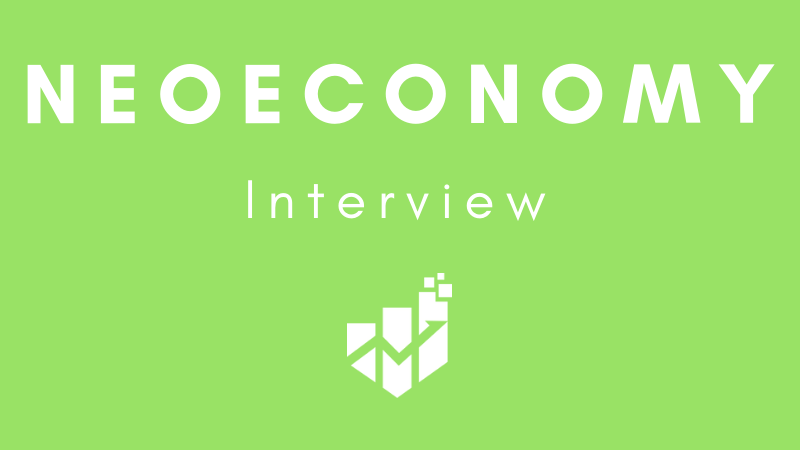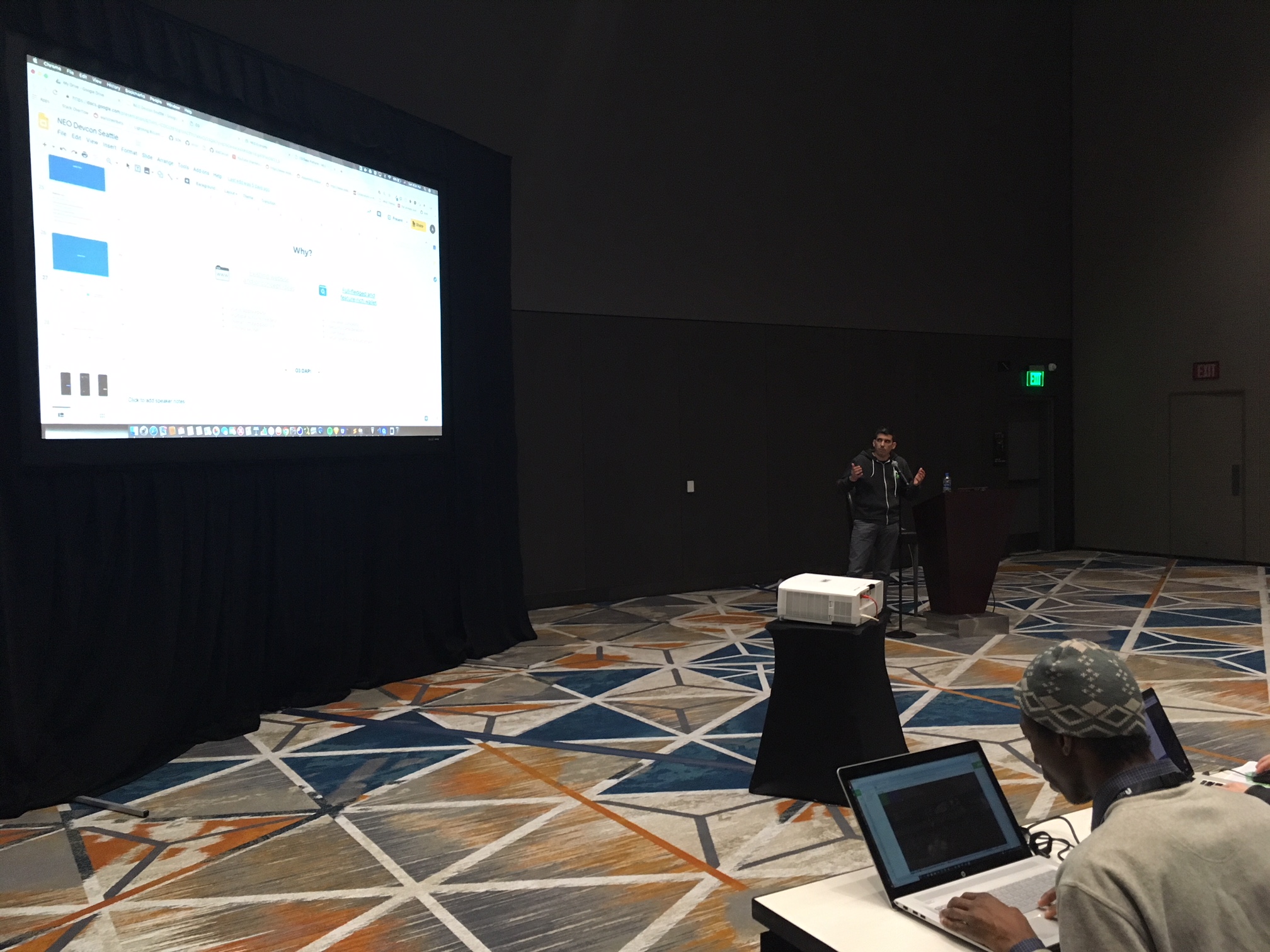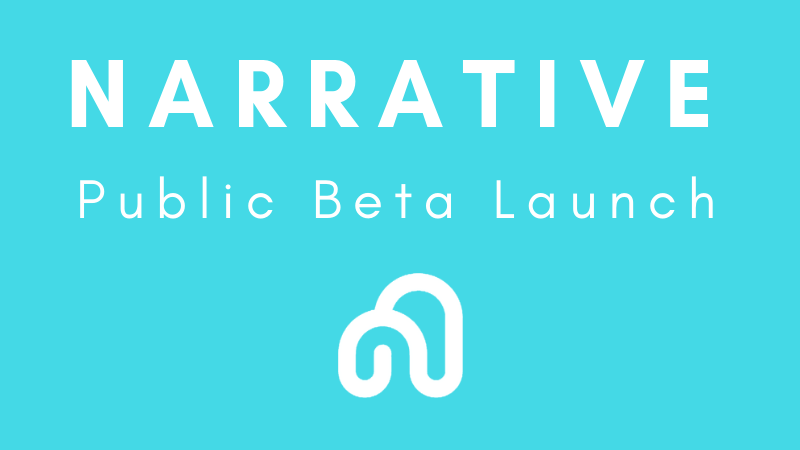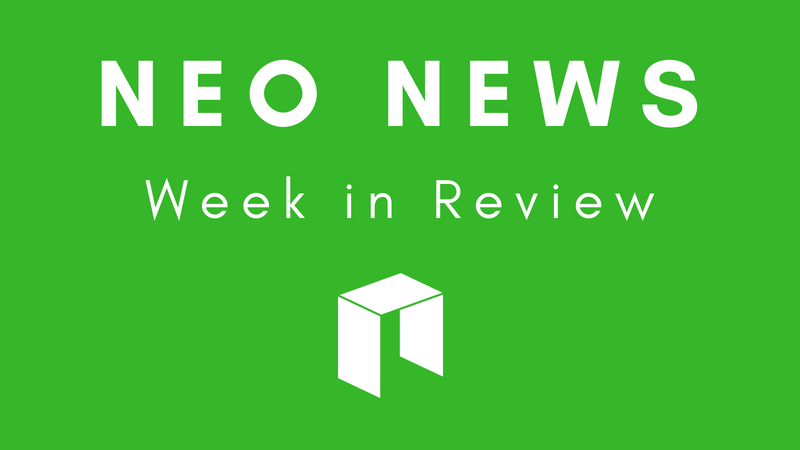
Few people have built more for the NEO community without funding or selling a token than Vincent G. The full-time network engineer and hobbyist freelancer is the driving force behind NEO ecosystem overview, NEO Economy (neoeconomy.io), and on February 4th, 2019, he published one of the first third-party dApps to be included in the O3 cryptocurrency wallet.
Vincent also gave an introduction to his O3 integrated NEO Economy dApp during the workshop on day two of NEO DevCon 2019 in Seattle.
Outside of NEO Economy, Vincent is also the moderator of the three main NEO focussed Telegram channels and an active contributor to NEO News Today.
Colin Closser of NEO News Today interviewed him recently from British Columbia, Canada about his work and creations.
Colin Closser – NEO News Today: So Vincent, can you tell our readers about your flagship creation, NEO Economy, to start off?
Vincent G: NEO Economy is a one-stop website for NEO and its NEP-5 tokens. I show live market prices, enhanced with statistics and graphs like ROI returns, recent performance, and such. I also show how the NEO blockchain is running with health-related metrics, such as block times, transactions per block, and transactions per second.
Users can also enter their NNS name or address and view their current market values and all time highs, plus a pie graph of their holdings. And last but not least, I added a NEO News Today news feed there too.
Colin: What motivated you to start creating in the world of blockchain? I mean, you’re a blogger that got motivated or inspired to start building websites that interact with NEO APIs to monitor the blockchain. So how did that come to pass?
Vincent G: I’d say because I have a background in programming. During school, I spent two years working as an analyst programmer so I know my way around web programming. About 2 years ago is when I found out about NEO. I was a little bit involved in cryptocurrencies and blockchain, but more like hobbies, I’d say. About early 2017 I found out about NEO, back then it was Antshares, which seemed very promising. So I did some digging and searching and around Christmas 2017 it was lacking a lot of good community resources, specifically aggregation tools.
They did have some kind of API like you said, which is basically what allowed me to get started, but there was no general overview of the ecosystem. I remember specifically why I started it: in a post on Reddit, someone was asking if people could build this. I said “Okay, sure,” and a week later I had a first draft. The site was quite different back then.
Colin: You also told me that you build things to use yourself. So did you have the idea for NEO Economy yourself, and then someone asking for it on Reddit caused you to start building it? You had the idea for a token viewer–not a scanner, but a market cap viewer?
Vincent: The idea was to involve NEO and its tokens. It made sense for me to make some kind of general overview of specific NEO pricing. When it turned out a lot of people were interested in this, I made it public.
Colin: You mentioned your programming background. Do you have any other relevant background?
Vincent: I’ve developed websites for the past 10 years. I worked as an engineer in France, so during my engineering school, one part of my courses was focused on IT and that’s what I do on a daily basis. I still work in IT, but on the networking side, so a bit different from the programming side – but there are a lot of overlaps. I do a lot of scripting and such, which I also do a lot for NEO Economy and my other projects. So I have some background which helps me develop.
Colin: You mention that you’re always learning. So when developing the tools that you have now, did you build them for the learning experience?
Vincent: Yes, and that’s what I like about NEO. They do have a lot of APIs, a lot of documentation, and they also support a wide range of programming languages. So it’s not comparable to Ethereum, where you have to focus on one specific language. With NEO you can start from scratch almost on any language and with some tutorials or guides, you can easily build.
Colin: What languages have you focused on with your apps so far?
Vincent: I’m more of a front-end guy with my website and I focus on Javascript. I’m using packages such as neon-js, and for my latest work with O3, they have Javascript packages which I integrate with. It’s basically front-end stuff; HTML, PHP and some kind of Javascript in between making the link between front-end and back-end. Nothing too complicated. Honestly, I’m not that good of a developer, I just spend a lot of time on it. Self-learning.
Colin: Can you take a second to describe your integration with O3 before we continue?
Vincent: Well, NEO Economy is fully automated except the portfolio checking — you have to enter your own address. When I found out about the O3 dApi, I wanted to build around it. NEO Economy could then run automatically because users are already connected with the O3 wallet.
So I tried to make NEO Economy even simpler and faster by using a direct access with O3. For now, it’s only a subset of the features I have on my website. But ideally, in the future, I’ll have a button on my website, “Connect with O3,” which will allow users to launch O3 Wallet directly from my site too and simplify their user experience.
Colin: I know a lot of developers that consider themselves good but they haven’t been able to monetize their product. Outsiders like me tend to think about launching a website and then monetizing it with ad banners. But it seems like a lot of your revenue, that perhaps helps build a better revenue stream, is referrals and click-through revenue.
Vincent: Basically I don’t rely on this income to live, so I don’t need it. And I didn’t start the website as a revenue website. So sure, if it pays at least my bills because it costs money that’s fine; to be honest it pays a little more which is also great, but it’s not the purpose. The main purpose would be to help the community because that is something I’ve always wanted to do.
Colin: I appreciate that there are no pop-ups and that it’s not mining Monero. Say a guy like me figured out how to register a domain name, and then wanted to build something that doesn’t exist currently. If people already have their idea, where should they start?
Vincent: I guess it would depend on the skill set and time you have. If it’s a really in-depth and interesting product, maybe it would require a complete token or a utility token. I’m not talking about an ICO, I’m just talking about the features of protection and usability provided by the blockchain.
But now, for example with O3, you are able to integrate anything with an existing wallet. So you can build in the ecosystem without doing anything in terms of low-level functionality. You don’t have to take care of sending assets, or interaction with the blockchain itself. Basically, right now anyone with a great idea is able to integrate a concept directly within the blockchain.
I think this is the future, it’s a very good idea. To me, it looks a lot like what Apple did when they started with the App Store. Everyone had the basics, which was an iPhone, and then you could integrate anything. And you don’t have to worry about: “Okay, how do I handle the camera? How do I handle the microphone?” Everything is already taken care of, so it’s pretty much the same.
Colin: It seems like the nOS ID article I wrote up is related to that, because you can have verified cryptocurrency balances served to your application, without programming a light wallet yourself.
Vincent: Yes, it overlaps a lot with nOS ID. I’m not sure about the specifics. I know a bit more about O3 and what they are trying to do is to make that a standard. O3 made some proposals already to develop a standard which any wallet or application provider can use. All set up with guidelines and specific stuff [for developers] to implement. I think it’s a great idea, to create a standard. We’ll have to see how that goes in the future.
Colin: So you presented your dApp as an example with O3 during the workshop of day 2 of NEO DevCon? What was that experience like and how was it received?
Vincent: It was a real pleasure to be invited by O3 to talk about the NEO Economy dApp during NEO DevCon 2019. I had the chance to present what it’s like to develop with the Smart Eco package, any hiccups encountered, but also the “why” and “how” I started my dApp and also what’s next.
I believe that people were quite interested overall by O3 dAPI and the Smart Eco package, and they seemed pretty excited about trying to develop stuff with it. Can’t wait to see what goes out of this.

Colin: I tried the dApp last night and I’m pretty excited about that. You were first out of the gate to work with O3. Is that because you were pushing the boundaries of what API’s were offering in terms of interaction with the NEO blockchain, and they were also developing at the edge, and you guys met at the edge?
Vincent: I guess it started because I wanted to integrate new features in NEO Economy, but I didn’t want to start from scratch. I didn’t want to take care of all the security aspects, either. Anything can happen on the internet, you know. So at first what I did with them was work on their Push API. Basically, I integrated some functionalities from NEO Economy being pushed out to O3 wallet users. It was more like a trial.
When they started to talk about their new dAPI ecosystem integration, it all made sense to me: Within O3, I can query a user’s balance, a user’s address, everything is seamless. This is basically what crypto requires at the moment; a seamless process. Because right now you have to have one application to transfer tokens, and another to check your balance, for example. It’s bad.
In a sense, they are trying to unify all of that. That’s what I try to do with them too.
Colin: Do you have new features for NEO Economy that you want to add that hasn’t been built out, or now you’re expanding into dApps for O3 and other applications?
Vincent: I have an internal roadmap with 15+ items I want to add. But the thing I’m missing is time. I could literally work 3 months on that and I wouldn’t have finished.
There’s also the monetary aspect. Like sure, I could work full time on that but right now it’s not really enough revenue so I can’t really do that. I’m alone and sometimes it’s tricky with personal life and work. There’s my day job, and then there’s that which I mostly do at night. It’s somehow complicated.
But yeah, I have a lot of things I want to integrate: I want to work on some stuff related to Ontology because it’s very similar and directly linked to NEO. Not sure everything would fit within my website, because it’s called NEO Economy, and it would take a lot of optimisation, because I build everything by myself. Some stuff is not fast enough for my taste.
Colin: I think you have one of the more impressive resumes out there of any freelancer. In terms of tools I might have open everyday while writing, I watch Bitcoin and NEO markets sometimes, Coinmarketcap sometimes, and then NEO Economy. Just because they are kind of cool! It’s a short list.
Vincent: I appreciate that. I have started a Telegram group and a Twitter account, and I do sometimes get messages from fans and it’s very appreciated. At least I know I’m not doing it for nothing.
Colin: Do you have a number of views for your site you can share?
Vincent: It’s crypto so everything depends on the market, but last year I had almost 100k pageviews per month, so that’s quite a lot. The past 6 months, it’s more like 20k per month. It’s still okay, more than okay for such a specific website. I’m still confident in the market and when the market changes we will change a lot too.
Colin: Yeah, I’ve learned that things seem to last forever but nothing lasts forever, especially with crypto.
Vincent: You know, my website is mostly based on prices and such, and people don’t like to see when prices are red.
Colin: Is there anything I missed that you want to talk about?
Vincent: I’ve been part of NEO News Today since last summer.
Colin: We should probably mention that you built the wireframes for our coming website redesign, and now it’s being skinned by a designer. Is that correct?
Vincent: Yes, basically it’s the first mock-up. It’s only an idea of what goes where, and so we had a bit of back and forth. It’s like 99% complete and now we are on the design part, which requires a designer because I am not one.
Colin: Right, so if someone liked the front-end of NEO Economy and they wanted to hire you, would you freelance for the right price? Are you available for this kind of work?
Vincent: Yes, I am. But again, it would have to be a fit. I won’t work for a project I don’t like or for only money-grabbing purposes. I have a wide skill set and I’m interested in many things. For NEO News Today, I’m trying to do many things but sometimes I don’t really know where I fit in. So it’s an ongoing process to define my exact responsibilities.
I’ve been managing Twitter scheduling of all the posts for a few weeks, so that’s one thing I like, the social media aspect. But maybe I’ll do other stuff in the future, I don’t know.
Colin: One of the best things about NEO News Today that I didn’t realize until I joined is I get to talk to the 6-7 people in the group about NEO all day long. It’s been really nice having you part of them. So thank you for this interview.
Vincent: Thank you for taking the time to interview me.
Vincent is the creator of neoeconomy.io.







About The Author: Colin Closser
Colin Closser, M.D., was a speaker at the first NEO DevCon in San Francisco. A devoted contrarian, he has managed the improbable: a peaceful and healthy life, despite holding a medical degree. He aspires towards the wisdom of Michael Lewis and Nassim Nicholas Taleb.
More posts by Colin Closser